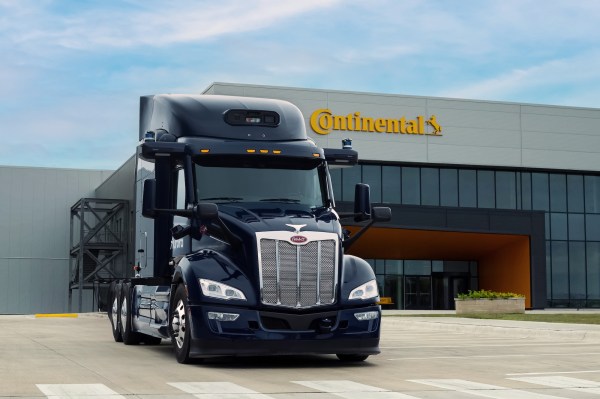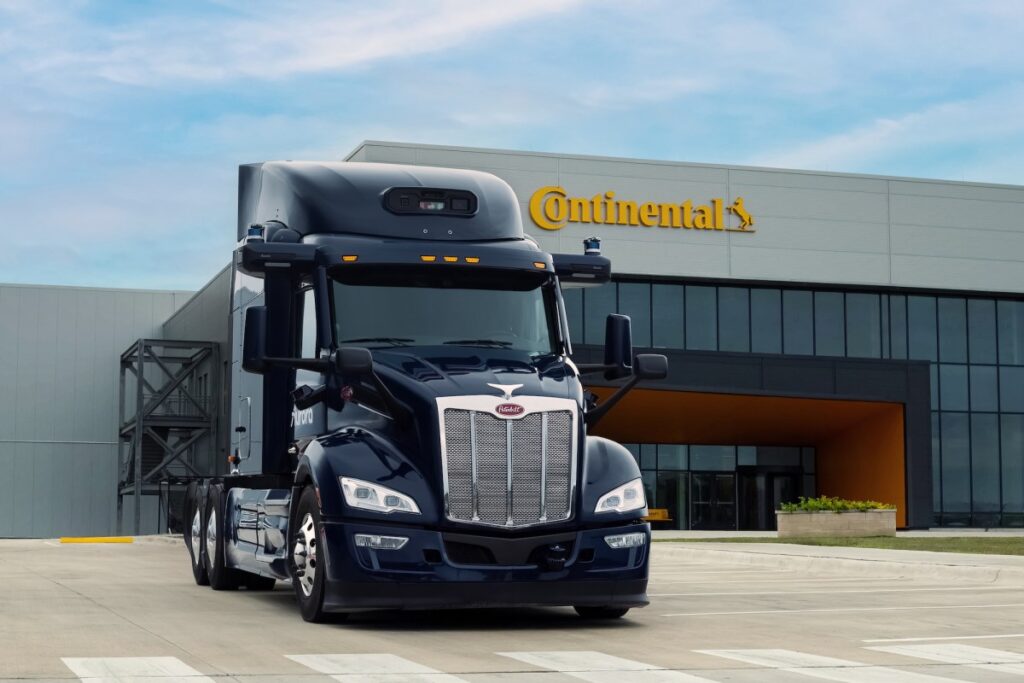
Aurora and automotive supplier Continental have completed the first phase of a project worth more than $300 million to mass-produce autonomous vehicle hardware for commercial self-driving trucks.
The design and system architecture of the autonomous vehicle hardware package is now complete, the companies said on Friday. Blueprints have also been finalized for a secondary computer that could take over operations in the event of a failure, known as a backup system. The companies announced the news ahead of a planned presentation at CES 2024, the annual technology trade show that kicks off next week in Las Vegas.
While it may seem like a small milestone in a years-long, multi-million-dollar journey, it is a complex and critical one. A range of hardware, including sensors such as radar, cameras and lidar, autonomous driving control units and high-performance computers, are used in conjunction with software to enable a vehicle, in this case a driverless semi-truck, to operate without a human driver. situations while driving on the road behind the steering wheel.
This means Continental can now start developing prototypes ahead of the planned start of production in 2027. Continental will build initial versions of the hardware for testing next year at its new plant in New Braunfels, Texas. The companies said they expect to begin “validation” by 2026, a process that will include integrating hardware and software systems onto a fleet of trucks for testing. Aurora also works with truck makers Paccar and Volvo Group.
The ultimate goal is to mass-produce automotive-grade hardware systems capable of withstanding the cold, heat and other environmental conditions that long-haul trucks encounter every day. Importantly, the hardware system must be reliable, easy to maintain and cost-effective to produce.
The companies have previously said they aim to produce thousands of such systems.
Aurora co-founder and CEO Chris Urmson said finalizing the design of its future hardware is a meaningful step toward making Aurora Driver’s unit economics compelling and building a long-term business. In other words, Urmson believes this is crucial if the company hopes to make a profit.
However, Aurora will not wait until 2027 or longer to launch commercial operations. The company plans to launch 19 autonomous Class 8 trucks, or driverless trucks, by the end of 2024. Initially, the driverless trucks will deliver freight between Dallas and Houston, a route the company has been using for testing.
Aurora spokesperson Rachel Chibidakis said that although the first 19 driverless trucks will not be equipped with the Aurora-Continental hardware package, they are designed according to automotive standards and can operate safely without a driver. Aurora will continue updating the fleet’s hardware over the next few years before moving to mass-manufactured kits.


3 Comments
Pingback: Aurora and Continental overcome first major hurdle in commercial self-driving truck deal – Tech Empire Solutions
Pingback: Aurora and Continental overcome first major hurdle in commercial self-driving truck deal – Mary Ashley
Pingback: Aurora and Continental overcome first major hurdle in commercial self-driving truck deal – Paxton Willson